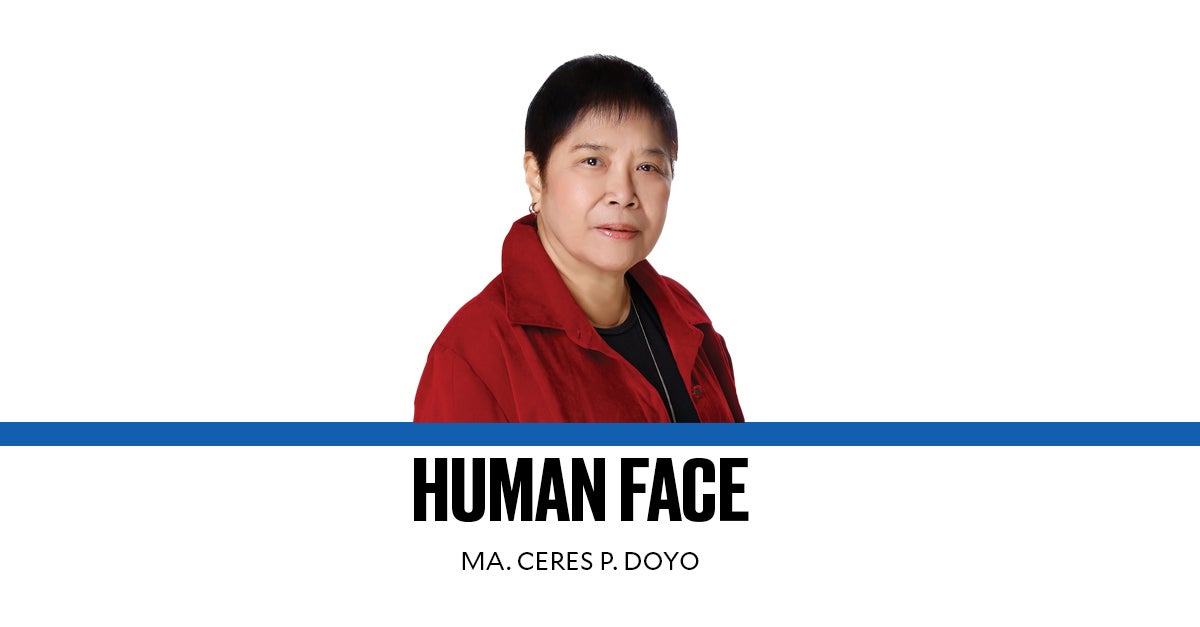Channeling late Justice Cecilia Muñoz-Palma

When I took my oath of office, I said to myself that my loyalty is not to the appointing power but to the Constitution, to justice, and to the Filipino people.” The late Supreme Court associate justice Cecilia Muñoz-Palma (1913-2006) was speaking about her 1975 dissenting opinion on the habeas corpus case of then Sen. Jose W. Diokno, one of the many arbitrarily jailed without charges upon the imposition of martial law under the Marcos dictatorship (1972-1986).
Her dissenting move (allegedly leaked) jumped the gun on Marcos, who promptly released Diokno. Muñoz-Palma also ordered the case of jailed late senator Benigno Aquino Jr. transferred from a military to a civilian court to ensure a fair trial.
Someone called Muñoz-Palma “ingrata” (ingrate) because Marcos had appointed her to the Supreme Court in 1973. She wore the tag like a badge of honor. But she was a beloved ingrata nonetheless, especially to those who knew her integrity, faithfulness to the rule of law, experience, and intellectual qualifications. (St. Scholastica’s College valedictorian, University of the Philippines College of Law valedictorian, Bar topnotcher in the 1937 Bar exams with a 92.6 percent grade.)
There was life after the Supreme Court. Muñoz-Palma ran for the Batasang Pambansa (National Assembly) in 1984 and won by a landslide.
Fast forward to 1986, soon after the Marcos dictatorship crumbled and Corazon Aquino rose to the presidency. Muñoz-Palma became the president of the Constitutional Commission that drafted the 1987 Philippine Constitution.
(More later on this Constitution’s Article XI on the impeachment of public officials, the current bone of contention, the cause célèbre that lies therein.)
Do visit the Justice Cecilia Muñoz-Palma Museum at the prosecutors’ wing of the Hall of Justice, beside the Quezon City Hall. View photographs, video clips, historical records, written works, and other memorabilia related to the late first woman justice of the Supreme Court. The items highlight the milestones in Muñoz-Palma’s life and the roles she played—wife, mother, judge, Supreme Court associate justice, assemblywoman, constitutionalist, God’s faithful servant. (My 2017 feature article on the museum and photos for the Inquirer should be online.)
I did write about Muñoz-Palma’s book “The Mirror of My Soul: Selected Decisions, Opinions, Speeches, and Writings” (883 pages!) where her dissenting opinion (with late associate justice Calixto Zaldivar concurring) on the Diokno case can be read in full. It is simple enough for nonlawyers, but it emits a luminous glow if read in the context of those dark years. She calls the case her “baptism of fire.” Muñoz-Palma gave away copies of her book during the Supreme Court’s 100th anniversary in 2001.
Riveting is the intro to that case, where Muñoz-Palma describes how she wrote it while in hiding, how she cloistered herself among the Benedictines of St. Scholastica’s College.
“The Mirror of My Soul” packs courage. In the book’s tribute portion, the late chief justice Marcelo Fernan writes: “I can still see her standing on the floor of the Batasan … No one can equal the passion with which she fought Amendment No. 6—that curse of presidential usurpation of legislative powers. She was also one of the few among us who dared file articles of impeachment against the then head of government.”
Now, that “I” word … As the president of the Constitutional Commission that framed the 1987 Constitution, what might Muñoz-Palma say about the tempest arising from the impeachment move against Vice President Sara Duterte by the House of Representatives and filed with the Senate for trial? And there was the VP’s petition with the Supreme Court to declare as null and void or unconstitutional the articles of impeachment.
The Supreme Court did not hear oral arguments but simply released its unanimous ruling that the articles of impeachment were unconstitutional and “immediately executory” (not final and executory), but added provisions that are not in the Constitution, something that caused an outcry among constitutionalists. Note that almost all current Supreme Court justices are appointees of former president Rodrigo Duterte, now detained at the International Criminal Court’s Scheveningen Prison in The Hague. Who would want to be called ingrato/a?
The senators moved—rightly or wrongly—for the archiving of the case, because “it is not dead,” but also hoping for its resurrection in case the Supreme Court reverses its decision after the motion for reconsideration and arguments have been heard. And even while Supreme Court Justice Marvic Leonen, the ponente, was saying that the decision was not absolving the VP of her transgressions in any way.
These days, Muñoz-Palma comes to my mind. The rule of law—these words are like her mantra. One can’t miss the spiritual theme that also runs through her writings. These two themes mirror her soul. Or to put it another way, in her soul, these two themes are mirrored. Indeed, in her life, this woman had always hearkened to a higher power, to a higher law.
—————-
Send feedback to cerespd@gmail.com





















